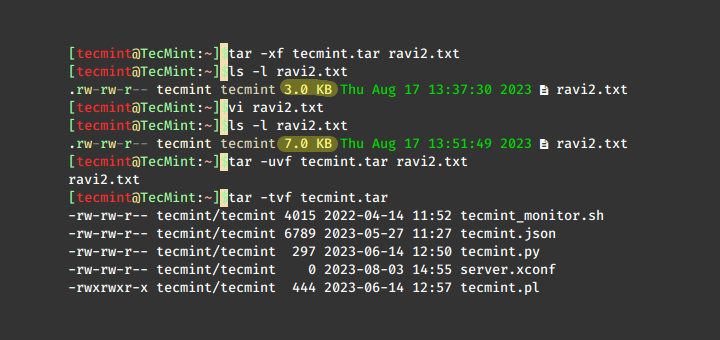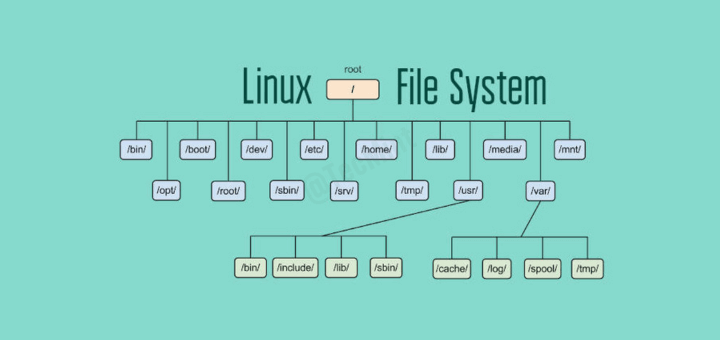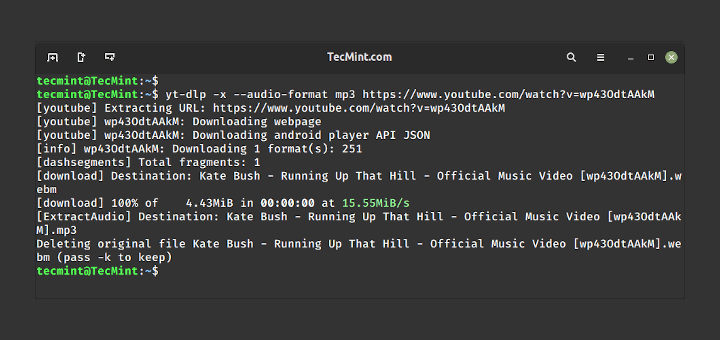nslookup is a command-line administrative tool for testing and troubleshooting DNS servers (Domain Name Server). It is used to query specific DNS resource records (RR) as well. Most operating systems come with a built-in nslookup feature.
This article demonstrates the widely used nslookup command in detail. Nslookup can be run in two modes: Interactive and Non-Interactive.
The Interactive mode is used to query DNS-Server about various domains and hosts. Non-Interactive mode is used to query about information of a domain or host.
You might also be interested in the following article :
- 35 Practical Examples of Linux Find Command
- 20 Netstat Commands for Linux Network Management
- 20 Linux YUM (Yellowdog Updater, Modified) Commands for Package Management
- 27 ‘DNF’ (Fork of Yum) Commands for RPM Package Management in Linux
1. Find out “A” record (IP address) of Domain
# nslookup yahoo.com Server: 4.2.2.2 Address: 4.2.2.2#53 Non-authoritative answer: Name: yahoo.com Address: 72.30.38.140 Name: yahoo.com Address: 98.139.183.24 Name: yahoo.com Address: 209.191.122.70
Above command query domain www.yahoo.com with 4.2.2.2 public DNS server and below section shows Non-authoritative answer: displays A record of www.yahoo.com
2. Find out Reverse Domain Lookup
# nslookup 209.191.122.70 Server: 4.2.2.2 Address: 4.2.2.2#53 Non-authoritative answer: 70.122.191.209.in-addr.arpa name = ir1.fp.vip.mud.yahoo.com. Authoritative answers can be found from:
3. Find out specific Domain Lookup.
# nslookup ir1.fp.vip.mud.yahoo.com. Server: 4.2.2.2 Address: 4.2.2.2#53 Non-authoritative answer: Name: ir1.fp.vip.mud.yahoo.com Address: 209.191.122.70
4. To Query MX (Mail Exchange) record.
# nslookup -query=mx www.yahoo.com
Server: 4.2.2.2
Address: 4.2.2.2#53
Non-authoritative answer:
www.yahoo.com canonical name = fd-fp3.wg1.b.yahoo.com.
fd-fp3.wg1.b.yahoo.com canonical name = ds-fp3.wg1.b.yahoo.com.
ds-fp3.wg1.b.yahoo.com canonical name = ds-any-fp3-lfb.wa1.b.yahoo.com.
ds-any-fp3-lfb.wa1.b.yahoo.com canonical name = ds-any-fp3-real.wa1.b.yahoo.com.
Authoritative answers can be found from:
wa1.b.yahoo.com
origin = yf1.yahoo.com
mail addr = hostmaster.yahoo-inc.com
serial = 1344827307
refresh = 30
retry = 30
expire = 86400
minimum = 1800
MX record is being used to map a domain name to a list of mail exchange servers for that domain. So that it tells that whatever mail received/sent to @yahoo.com will be routed to the mail server.
5. To query NS(Name Server) record.
# nslookup -query=ns www.yahoo.com
Server: 4.2.2.2
Address: 4.2.2.2#53
Non-authoritative answer:
www.yahoo.com canonical name = fd-fp3.wg1.b.yahoo.com.
fd-fp3.wg1.b.yahoo.com canonical name = ds-fp3.wg1.b.yahoo.com.
ds-fp3.wg1.b.yahoo.com canonical name = ds-any-fp3-lfb.wa1.b.yahoo.com.
ds-any-fp3-lfb.wa1.b.yahoo.com canonical name = ds-any-fp3-real.wa1.b.yahoo.com.
Authoritative answers can be found from:
wa1.b.yahoo.com
origin = yf1.yahoo.com
mail addr = hostmaster.yahoo-inc.com
serial = 1344827782
refresh = 30
retry = 30
expire = 86400
minimum = 1800
6. To query SOA (Start of Authority) record.
# nslookup -type=soa www.yahoo.com
Server: 4.2.2.2
Address: 4.2.2.2#53
Non-authoritative answer:
www.yahoo.com canonical name = fd-fp3.wg1.b.yahoo.com.
fd-fp3.wg1.b.yahoo.com canonical name = ds-fp3.wg1.b.yahoo.com.
ds-fp3.wg1.b.yahoo.com canonical name = ds-any-fp3-lfb.wa1.b.yahoo.com.
ds-any-fp3-lfb.wa1.b.yahoo.com canonical name = ds-any-fp3-real.wa1.b.yahoo.com.
Authoritative answers can be found from:
wa1.b.yahoo.com
origin = yf1.yahoo.com
mail addr = hostmaster.yahoo-inc.com
serial = 1344827965
refresh = 30
retry = 30
expire = 86400
minimum = 1800
7. To query all Available DNS records.
# nslookup -query=any yahoo.com
Server: 4.2.2.2
Address: 4.2.2.2#53
Non-authoritative answer:
yahoo.com
origin = ns1.yahoo.com
mail addr = hostmaster.yahoo-inc.com
serial = 2012081016
refresh = 3600
retry = 300
expire = 1814400
minimum = 600
Name: yahoo.com
Address: 98.139.183.24
Name: yahoo.com
Address: 209.191.122.70
Name: yahoo.com
Address: 72.30.38.140
yahoo.com mail exchanger = 1 mta7.am0.yahoodns.net.
yahoo.com mail exchanger = 1 mta5.am0.yahoodns.net.
yahoo.com mail exchanger = 1 mta6.am0.yahoodns.net.
yahoo.com nameserver = ns3.yahoo.com.
yahoo.com nameserver = ns4.yahoo.com.
yahoo.com nameserver = ns2.yahoo.com.
yahoo.com nameserver = ns8.yahoo.com.
yahoo.com nameserver = ns1.yahoo.com.
yahoo.com nameserver = ns6.yahoo.com.
yahoo.com nameserver = ns5.yahoo.com.
Authoritative answers can be found from:
8. Enable Debug mode
To enable Debug Mode ‘set debug’ will return you verbose information like TTL, here’s the output.
# nslookup -debug yahoo.com
> set debug
> yahoo.com
Server: 4.2.2.2
Address: 4.2.2.2#53
------------
QUESTIONS:
yahoo.com, type = A, class = IN
ANSWERS:
-> yahoo.com
internet address = 72.30.38.140
ttl = 1523
-> yahoo.com
internet address = 98.139.183.24
ttl = 1523
-> yahoo.com
internet address = 209.191.122.70
ttl = 1523
AUTHORITY RECORDS:
ADDITIONAL RECORDS:
------------
Non-authoritative answer:
Name: yahoo.com
Address: 72.30.38.140
Name: yahoo.com
Address: 98.139.183.24
Name: yahoo.com
Address: 209.191.122.70
In this article, we have tried to cover nslookup commands which may help you to search (DNS) Domain Name Service-related information.
The next article will be on the Linux dig command which is similar to nslookup. If you liked the article please share it with your friends and don’t forget to give your valuable feedback through the comment box.







Hello, I have several NDS servers. for example :
ns1.dnsserver.test
ns2.dnsserver.test
ns3.dnsserver.test
ns4.dnsserver.test
I want to check a record on all DNS servers using the nslookup command. For example, how can I check the MX record for a domain only on the ns3.dnsserver.test server using the nslookup command?
@Ariya,
Try this command to query MX record for domain.
Hi,
I have a query regarding DNS resolution in Linux. I have entered the DNS servers in the resolve.conf. But the client is complaining that there is intermittent resolution problems. But when I am checking with nslookup and dig not finding any issues. Is there any way i can check the historical DNS resolution errors as to find when these kind issues were happening.
Regards,
Vinod
@Vinod,
May be the issue with their network setup, try to use same dig and nslookup commands from other network sources and see any issues..
Hi Ravi,
Thanks for your update. Apart from this, is there any logs which I can investigate to find when the issue is happening. Since it is inttermittent issue and currentky the resolution is happening.
Regards,
Vinod
@Vinod,
Unfortunately, there isn’t any logs for dig and nslookup requests, you need to find out yourself the issue..
nice Article Ravi
The commands used to troubleshoot DNS activity are
a) NSLOOKUP
b) IPCONFIG /registerdns
c) IPCONFIG /displaydns
d) All the Option
can i get the ans pls
Sr Ravi
Im new in Oracle 11g… a install Centos 6.4 linux in VM VirtualBox 4.2.12 and a could not do de YUM UPDATE… error Canot find a Valid Baseurl for repo base. And also i need know
what have to do next for istall Oracle 11g ..please help me
I want learn that….please.
Thankyou for your time and atencion.
Antony
Is your /etc/resolv.conf file has proper dns entries? If no, add your network DNS entries to this file and try again.
excellent !but i am not getting reply usally if i raise any query ?? :(
Sorry Sushant for my negligence. Tell me what query you have.
I remember hearing nslookup was going to be depredicated is this still the case. I know dig was pushed before, can anyone give an update.
thanks